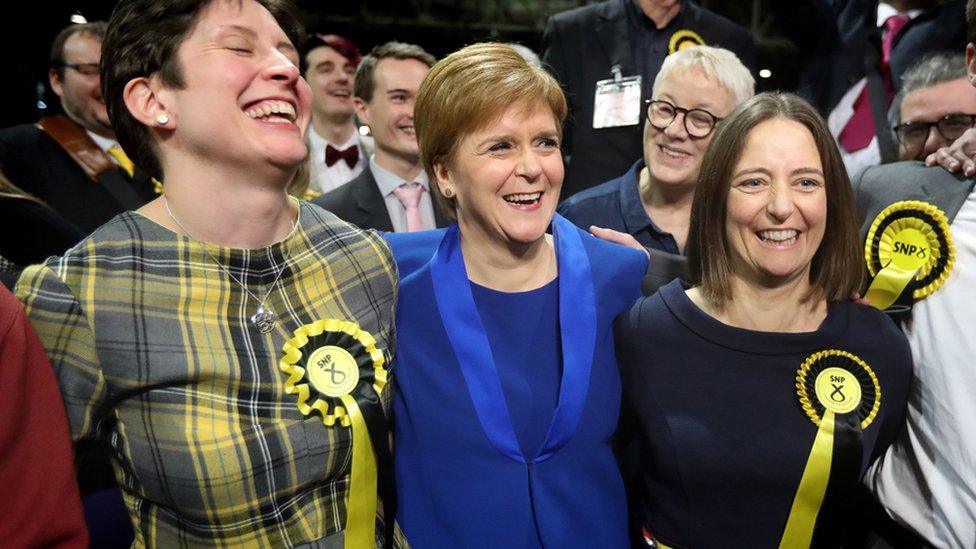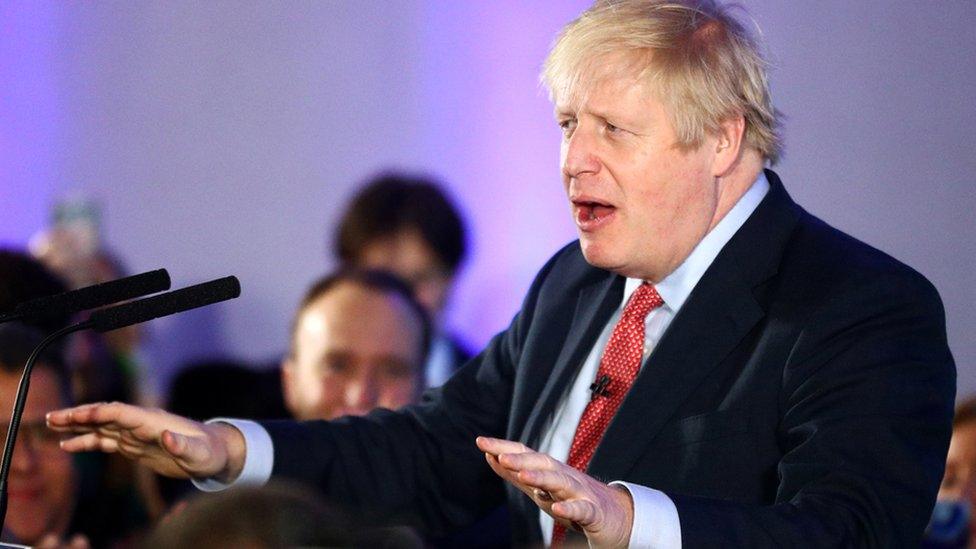Election results 2019: A constitutional collision course in Scotland
- Published

Nicola Sturgeon celebrates the results in Glasgow
Nicola Sturgeon maintained throughout the election campaign that she did not want to see Boris Johnson returned to Downing Street as prime minister.
But the SNP leader knows that a majority Tory government in Westminster, while Scotland voted very differently, is the result most likely to advance her greatest ambition - independence for Scotland.
The party which dominates Scotland is now set on a constitutional collision course with the UK government.
The SNP's strongest argument is that Scotland and the rest of UK are moving in different political directions.
And that's been vividly demonstrated as England embraces the Tories whilst they have lost votes and lost seats north of the border.

The UK will now move on to leaving the EU at the same time as the two parties who campaigned to stop Brexit, the SNP and the Lib Dems, increased their vote share in Scotland.
The SNP took a gamble by making their demand for a second independence referendum central to their campaign. That's a policy that can enthuse their voters, but runs the risk of galvanizing people who don't want to leave the UK to turn out and vote against the SNP.
The Scottish Conservatives campaigned on a slogan of "Tell her again, say no to indyref2".
But that's not what happened. The Tories lost seven of their 13 Scottish seats and the SNP won 13. They now hold 48 of 59 MPs in Scotland, with one sitting as an independent.

Boris Johnson will refuse to grant the legal power to hold an independence vote
This result cannot be interpreted as an outright demand for Scottish independence. But the SNP will vigorously argue that it does mean Scotland must be allowed to make a choice about its future - inside or outside the UK.
Nicola Sturgeon says she won't pretend that every single person who voted SNP necessarily supports independence. But she will insist this result is a thumping endorsement of her demand for a second referendum.
She will make an official request in the next few days to be granted the legal power to hold an independence vote.
And we know that Boris Johnson will refuse, sparking a huge debate about whether the Conservatives are ignoring the democratic choice of Scottish voters.
It's a debate that can only escalate as we leave the EU - and one which may fuel support for independence itself.

WHO WON IN MY CONSTITUENCY? Check your result, external
NATIONAL PICTURE: The result in full, external
ALL YOU NEED TO KNOW: The night's key points
MAPS AND CHARTS: The election in graphics, external
IN PICTURES: Binface, a baby and Boris Johnson

